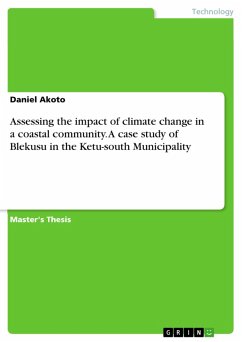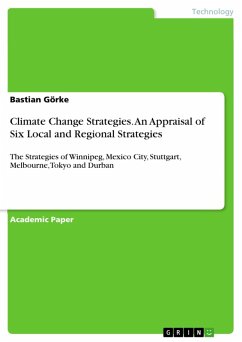Academic Paper from the year 2022 in the subject Environmental Sciences, grade: A, University of Nairobi, language: English, abstract: Energy conservation is at the center of global sustainable development efforts. To be successful, studies suggested that energy conservation should be a self-driven action. However, demand side management strategies recommend purchasing of third party products, behaviour change and careful monitoring of energy consumption in homes and workplaces (Berkout, 2015). Apart from renewable energy sources such as wind and solar, studies indicated that power consumption appliances such as smart meters also play important role in energy conservation and development. In British Columbia (BC), Canada, two organisations, BC Hydro and FortisBC have been at the forefront in designing and implementing demand side management (DSM) programs to reduce energy consumption, minimise greenhouse (GHG) emissions and attain climate action goals (Gaede et al., 2021). These organisations invest in policies that promote a socio-economic balance in energy conservation and economic status of the users. BC Hydro and FortisBC pushes for inexpensive, sustainable DSM measures that would enhance Canada's ability to respond to climate change challenges by conserving energy and reducing GHG emissions (Envint Consulting, 2022). In relation to this argument, this paper critically explores how the DSM programs of BC Hydro and FortisBC advance climate action in Canada.
Dieser Download kann aus rechtlichen Gründen nur mit Rechnungsadresse in A, B, BG, CY, CZ, D, DK, EW, E, FIN, F, GR, HR, H, IRL, I, LT, L, LR, M, NL, PL, P, R, S, SLO, SK ausgeliefert werden.









